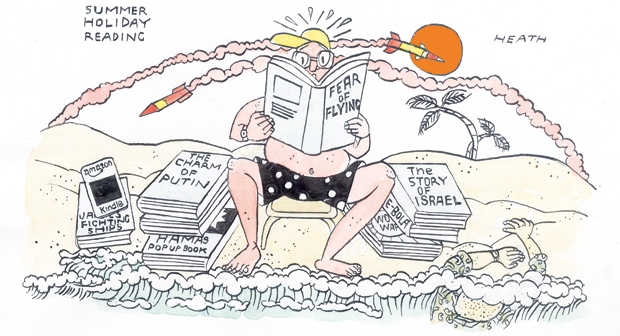Home
Britain is to halve to three months the time that EU migrants without realistic job prospects can claim benefits, David Cameron, the Prime Minister, said in an article for the Daily Telegraph. Workers for the Passport Office who belong to the Public and Commercial Services Union went on strike ostensibly to ‘end staffing shortages that have caused the ongoing backlog crisis’. Driverless cars will be allowed on roads from next year. Newham council in east London approved a £1 billion scheme for an ‘Asian Business Port’ to be built by the Chinese at the Royal Albert Dock. The Gherkin office block in London was put up for sale, with expectations of its fetching £650 million. People in Tring complained of the smell of sewage sludge on fields.
Philip Hammond, the Foreign Secretary, said that the deadly ebola virus, which has killed 672 people in west Africa, was a threat to Britain. Universities should be able to buy student debts, according to David Willetts, who was recently sacked as universities minister. British car factories have increased production by 50 per cent in the past four years. Fracking would only be allowed at beauty spots in ‘exceptional circumstances’ the government said in rules for a new round of bidding for licences. Three 325-foot towers at Didcot power station were demolished with explosives at 5 a.m. to stop too many people watching.
Up to 60 prisoners rioted at Ranby prison, Nottinghamshire, which a week earlier had been criticised by HM Inspectorate of Prisons as violent and unsafe. The first woman commander of a frigate left her appointment while the Royal Navy investigates claims that she had an affair with someone in the ship’s company. Max Mosley sued Google for continuing to publish images of him at a sex party that had appeared in the News of the World, which he successfully sued in 2008. The deputy president of the Pan-Malaysian Islamic Party complained that the Scottie dogs that preceded each team at the opening of the Commonwealth Games were ‘disrespectful’ because ‘Muslims are not allowed to touch dogs’. The Royal College of Veterinary Surgeons struck off a Suffolk vet for having engaged in sexual activity with a dog.
Abroad
Israel continued its attack on the Gaza strip, focused, it said, on tunnels across the border. In three weeks since the beginning of the assault, 1,115 Palestinians, most of them civilians, had been killed, while Israel has lost 53 soldiers and three civilians. The UN said it was caring for 182,604 Palestinians in its 82 buildings used as shelters in Gaza. In Afghanistan every vote in the 23,000 ballot boxes from the presidential elections was being examined to break a stalemate. Chinese police shot dead dozens of people they said had attacked a police station and civilians in two towns with a large Uighur population.
An international team investigating the cause of the Malaysia Airlines Flight 17 disaster repeatedly failed to reach the crash site, as heavy fighting continued between Ukrainian government forces and rebels. Holland had received 188 coffins, but some remains of the 298 who were killed were left where they fell. Economic sanctions against Russia, which the western powers said was continuing to arm rebels in Ukraine, were adopted by the European Union’s 28 member states’ ambassadors and by the United States. British Petroleum, which owns nearly 20 per cent of the Russian state oil company Rosneft, warned that sanctions could ‘adversely impact’ its performance. The United States accused Russia of breaking the Intermediate-Range Nuclear Forces Treaty (signed by Ronald Reagan and Mikhail Gorbachev in 1987), by testing a nuclear cruise missile. The Permanent Court for Arbitration in the Hague ordered Russia to pay £29.5 billion to former shareholders in the oil company Yukos, which had been pushed into bankruptcy by Russian officials. The weather was blamed for the crashing of an Air Algerie aeroplane in Mali, which killed the 116 people aboard.
Videos circulated of 50 soldiers’ heads stuck on poles at Raqqa in Syria by troops acting for Isis, which now calls itself the Islamic State. Australia issued warrants for the arrest of two of its citizens, one of whom was seen holding up a severed head. France offered asylum to thousands of Christians from Mosul in Iraq forced to flee by Isis. The tomb of the prophet Jonah was also said to have been deliberately destroyed. Rival militias continued to fight in Libya and a huge blaze engulfed the biggest fuel depot in Tripoli. The Spanish ten-year bond yield fell to its lowest level, it was said, since the French revolution. CSH






Comments